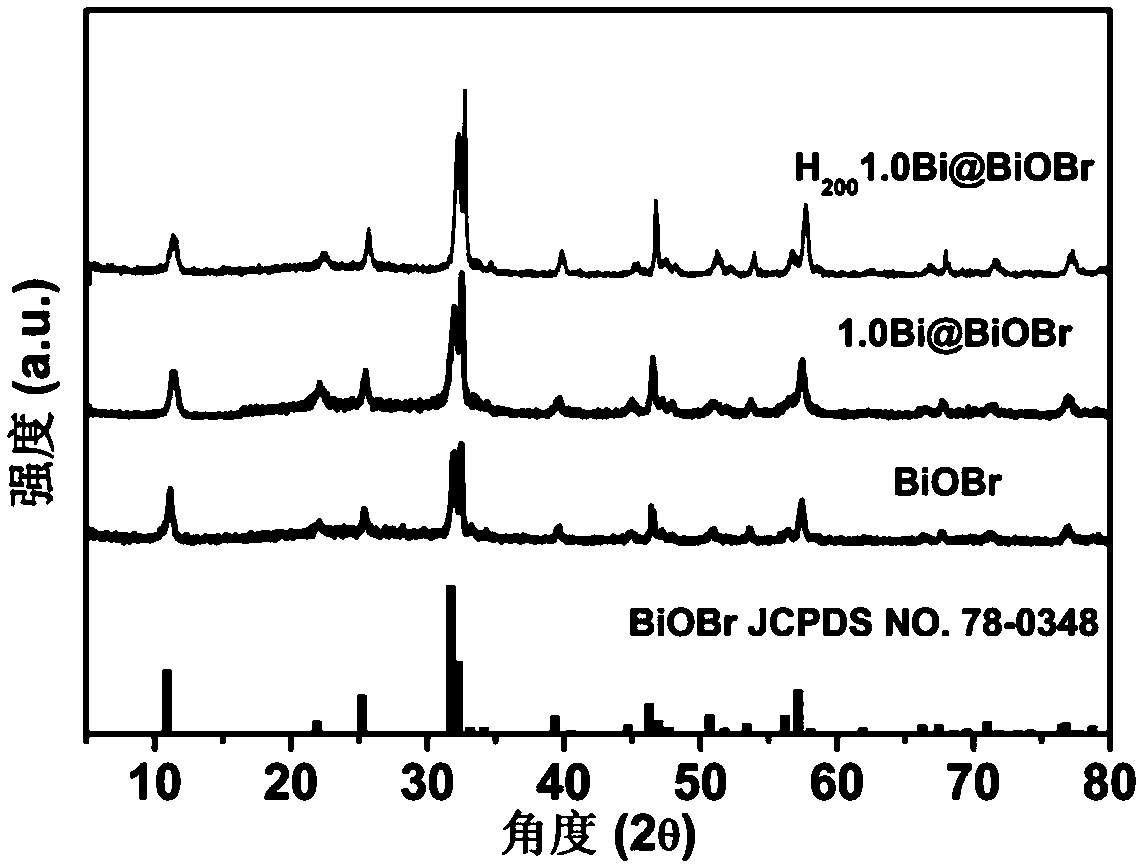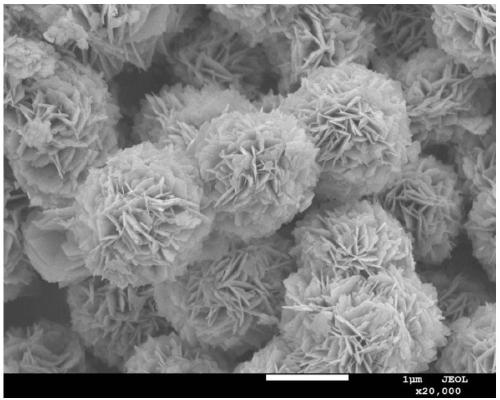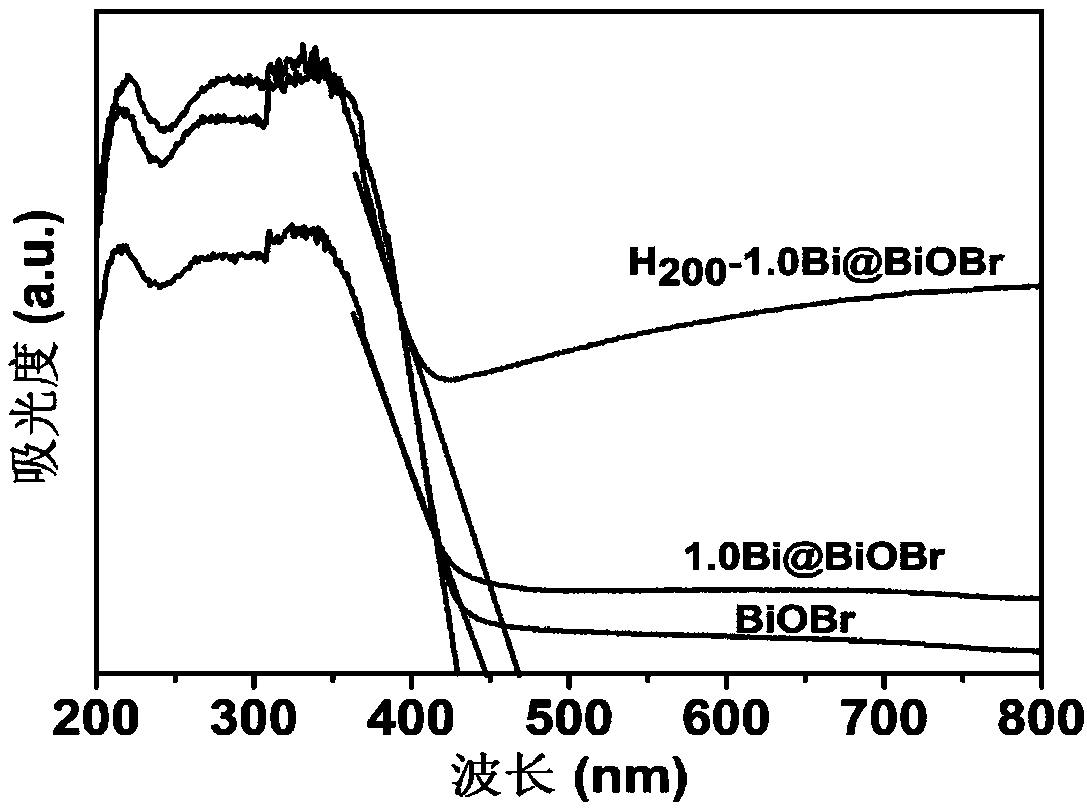Visible-light response photocatalyst and application, preparation method and using method thereof
A photocatalyst and visible light technology, applied in the field of photocatalytic materials, can solve problems such as low organic matter degradation ability, and achieve the effect of high quantum efficiency, broad application prospects, and good visible light photocatalytic degradation of organic matter performance.
- Summary
- Abstract
- Description
- Claims
- Application Information
AI Technical Summary
Problems solved by technology
Method used
Image
Examples
Embodiment 1
[0048] Add 0.24g of bismuth nitrate pentahydrate and 0.102g of sodium bromide into 10mL of ethylene glycol solution, stir thoroughly for 20min until the solution becomes clear, then add 25mL of isopropanol solution, stir the mixed solution for 30min, add 1mL of thiourea solution, and stir for 5min Put it into a 1-2Mpa high-pressure reactor, and carry out a constant temperature hydrothermal reaction at 160°C for 12h. The product was cooled to room temperature for centrifugation and washed 6 times with water and ethanol solution, and dried at 60°C to collect the powder. Calcined at 200 °C and 360 mL / min hydrogen atmosphere for 4 h to obtain the final product H-Bi@BiOBr.
[0049] figure 1 It is the XRD diffraction pattern of the H-Bi@BiOBr photocatalyst obtained in this example, and compared with the PDF standard card, it is known that the obtained BiOBr is a tetragonal phase.
[0050] figure 2 It is the scanning electron microscope image of the H-Bi@BiOBr photocatalyst obtai...
Embodiment 2
[0056] Add 0.24g of bismuth nitrate pentahydrate and 0.102g of sodium bromide into 10mL of ethylene glycol solution, stir thoroughly for 20min until the solution becomes clear, then add 25mL of isopropanol solution, stir the mixed solution for 30min, add 1mL of thiourea solution, and stir for 5min Then put it into a 1-2Mpa high-pressure reactor, and carry out a constant temperature hydrothermal reaction at 160°C for 12h. The product was cooled to room temperature for centrifugation and washed 6 times with water and ethanol solution, and dried at 60°C to collect the powder. Calcined at 250 °C and 360 mL / min hydrogen atmosphere for 4 h, the final product H-Bi@BiOBr was obtained.
Embodiment 3
[0058] Add 0.24g of bismuth nitrate pentahydrate and 0.102g of sodium bromide into 10mL of ethylene glycol solution, stir thoroughly for 20min until the solution becomes clear, then add 25mL of isopropanol solution, stir the mixed solution for 30min, add 1mL of thiourea solution, and stir for 5min Then put it into a 1-2Mpa high-pressure reactor, and carry out a constant temperature hydrothermal reaction at 160°C for 12h. The product was cooled to room temperature for centrifugation and washed 6 times with water and ethanol solution, and dried at 60°C to collect the powder. Calcined at 150 °C and 360 mL / min hydrogen atmosphere for 4 h to obtain the final product H-Bi@BiOBr.
PUM
 Login to View More
Login to View More Abstract
Description
Claims
Application Information
 Login to View More
Login to View More - Generate Ideas
- Intellectual Property
- Life Sciences
- Materials
- Tech Scout
- Unparalleled Data Quality
- Higher Quality Content
- 60% Fewer Hallucinations
Browse by: Latest US Patents, China's latest patents, Technical Efficacy Thesaurus, Application Domain, Technology Topic, Popular Technical Reports.
© 2025 PatSnap. All rights reserved.Legal|Privacy policy|Modern Slavery Act Transparency Statement|Sitemap|About US| Contact US: help@patsnap.com



